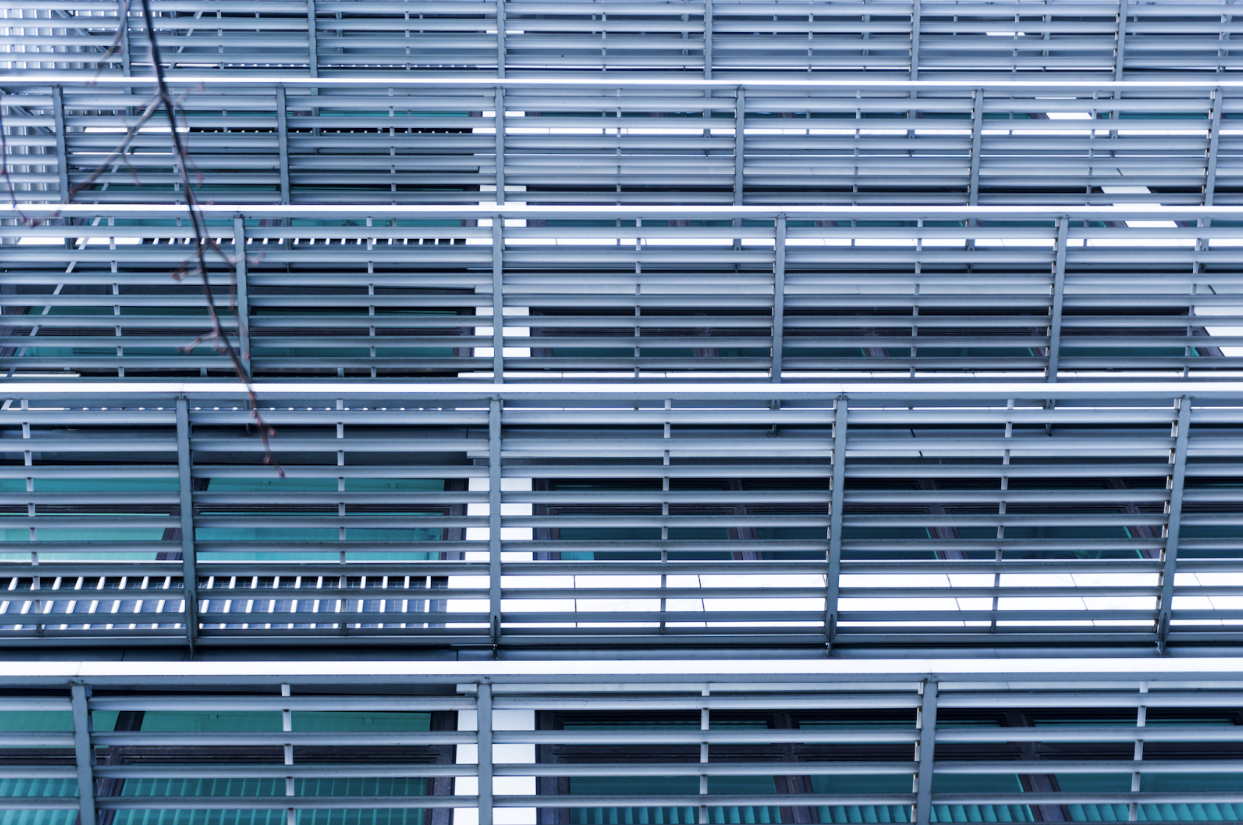
Commercial Louvers: Solutions for Buildings and Ventilation
Although you might not ever notice them, commercial louvers play a huge part in a building’s ventilation, air quality, and energy efficiency.
Here’s everything you should know about the different roles, types, and applications of commercial louvers for buildings.
Essential Functions of Commercial Louvers
Because there are a variety of different types of louvers, there are actually several different functions that commercial louvers have in terms of maintaining a building's ventilation. For example:
Role in Indoor Air Quality
Commercial louvers are integral components in building ventilation systems, crucial for maintaining a healthy indoor environment. These systems are designed to allow fresh air to enter and stale air to exit, thereby ensuring optimal indoor air quality.
Protection Against Environmental Elements
Louvers also play a dual role by preventing rain, dust, and debris from entering the building. This functionality is combined with aesthetic appeal, which is essential in modern architecture, making louvers a key element in both the functionality and visual aspects of a building.
Compliance with AMCA Standards
An important aspect of louver functionality is their compliance with AMCA standards. AMCA-certified louvers undergo rigorous testing for their ability to resist water penetration, air performance, and wind-driven rain. This ensures they meet high performance and safety standards, reassuring architects and builders of the louvers' quality and efficiency.
Materials Used to Make Commercial Louvers
- Aluminum: Aluminum is the most commonly used material for commercial louvers. Its durability, lightweight nature, and resistance to corrosion make it an ideal choice. Aluminum louvers can be easily customized in terms of color and finish, allowing them to complement any architectural style.
- Alternative Materials: Other materials used for louvers include fiberglass reinforced panels (FRP), metal, and wood. FRP, known for its high durability and weather resistance, is particularly suitable for demanding environments. Metal and wood louvers offer additional aesthetic options and can be used depending on specific design requirements.
Exploring Types of Commercial Louvers: Applications and Benefits
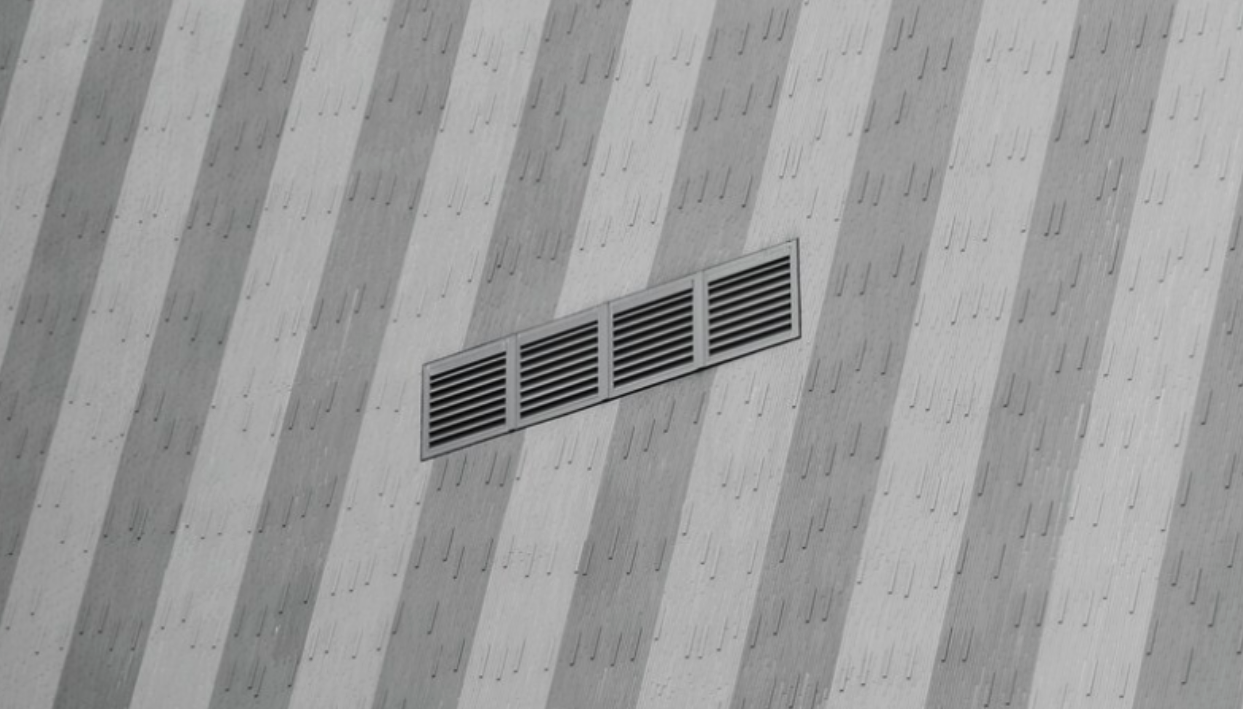
When selecting the appropriate commercial louver for your building, it’s important to consider all the different types of louvers:
Fixed Louvers
Fixed louvers are designed to provide consistent airflow and protect against rain and debris without the need for adjustment. These louvers are ideal for maintaining a steady flow of air and are a reliable solution for many ventilation needs.
PTAC Louvers
Packaged Terminal Air Conditioner (PTAC) louvers are specialized for use with PTAC units, which come in various configurations and are designed to fit any brand of PTAC, providing efficient ventilation and protection.
They are available in custom and standard sizes, with optional glazing, channel, and perimeter frames. PTAC louvers are manufactured from 6063-T6 extruded aluminum, ensuring durability and performance.
Architectural Louvers
Architectural louvers offer both functionality and aesthetic appeal.
These louvers are customizable to match the building’s design and are available in a range of finishes and colors. They are designed to protect against environmental elements while enhancing the visual appeal of the building facade.
Specialized Louvers
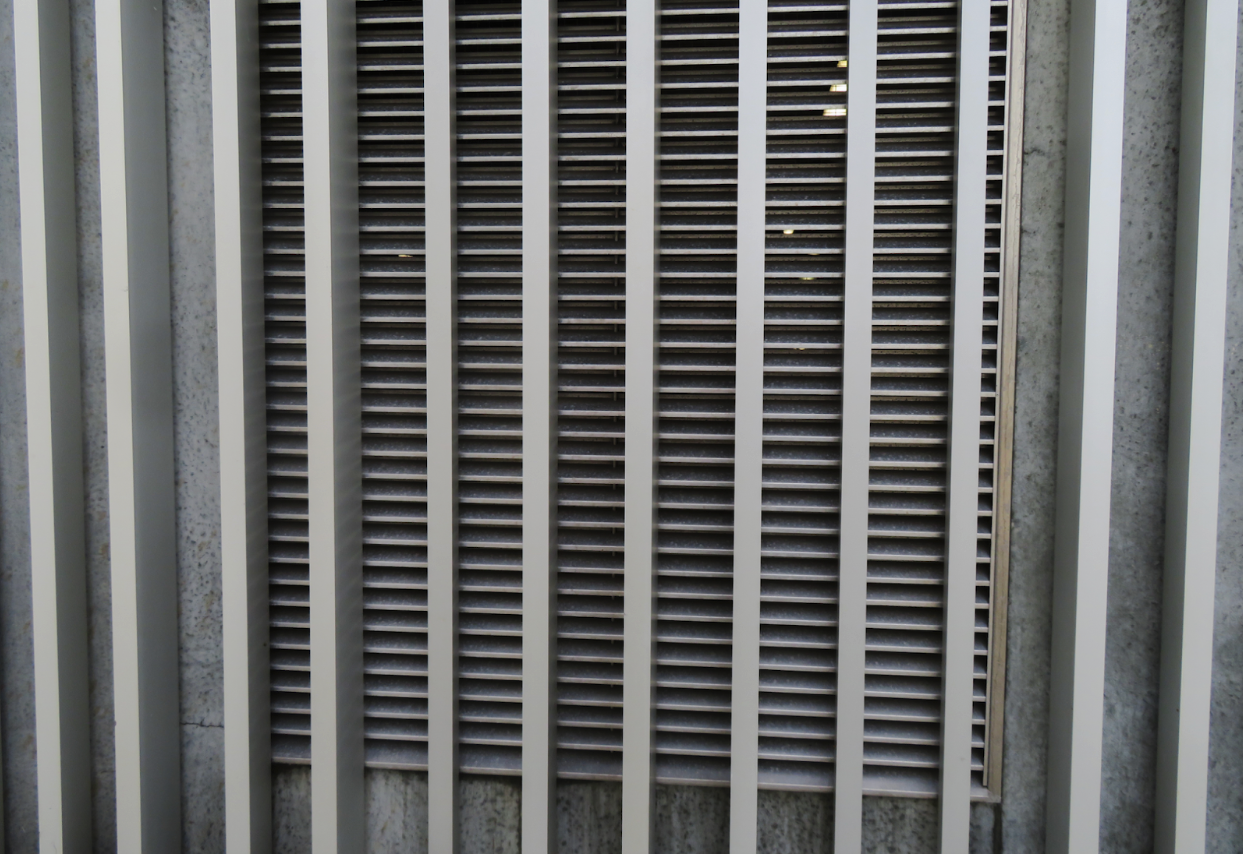
Wind-Driven Rain Louvers
Wind-Driven Rain Louvers are crucial in high-rainfall areas, featuring a design that allows water droplets to collide with the blades and drain away, ultimately preventing water entry while maintaining effective ventilation.
Hurricane Louvers
Hurricane louvers are built to withstand extreme weather conditions, including high winds and flying debris. They are essential for hurricane-prone areas, ensuring structural integrity and effective ventilation even during severe weather events.
Sunshades
Sunshades are engineered to reduce solar heat gain and control glare, significantly lowering energy costs. Customizable in various designs, they provide both functional and aesthetic benefits to any commercial building.
Using Commercial Louvers to Optimize Building Ventilation
Optimizing building ventilation with commercial louvers requires a comprehensive understanding of various factors. To name a few:
- Ventilation Efficiency: Louvers enhance natural ventilation by allowing fresh air to circulate, reducing the need for mechanical ventilation systems. This natural airflow helps maintain indoor air quality and reduces energy consumption, contributing to a healthier and more cost-effective building environment.
- Energy Efficiency:By allowing natural light to penetrate and minimizing the reliance on artificial lighting during daylight hours, louvers help lower energy consumption. This not only reduces operational costs but also enhances the mood and productivity of occupants.
Design and Style Variations of Commercial Louvers
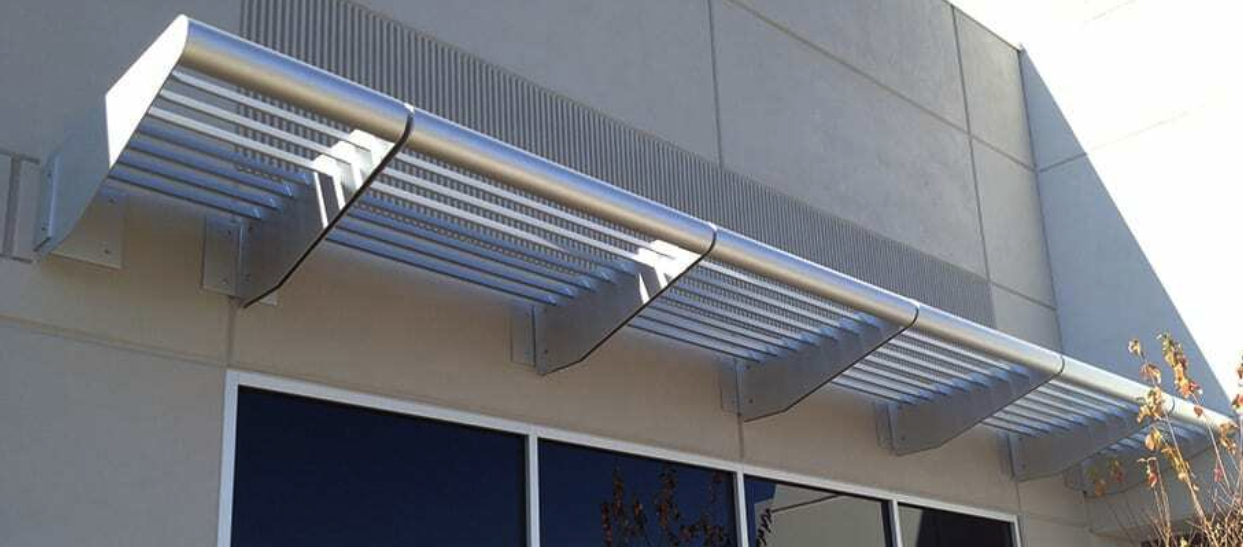
When selecting commercial louvers, considering the design and style variations is crucial to achieving both functionality and appearance.
- Design Versatility: Louvers can either stand out as a major architectural feature or blend seamlessly into the building’s facade. This versatility ensures they meet both functional and aesthetic requirements, providing a balance between utility and design.
- Customization Options: Louvers come in various styles, sizes, and finishes, making them suitable for any architectural design. Customization options ensure that they can be tailored to match specific project needs, enhancing both the functionality and visual appeal of the building.
Applications for Commercial Louvers
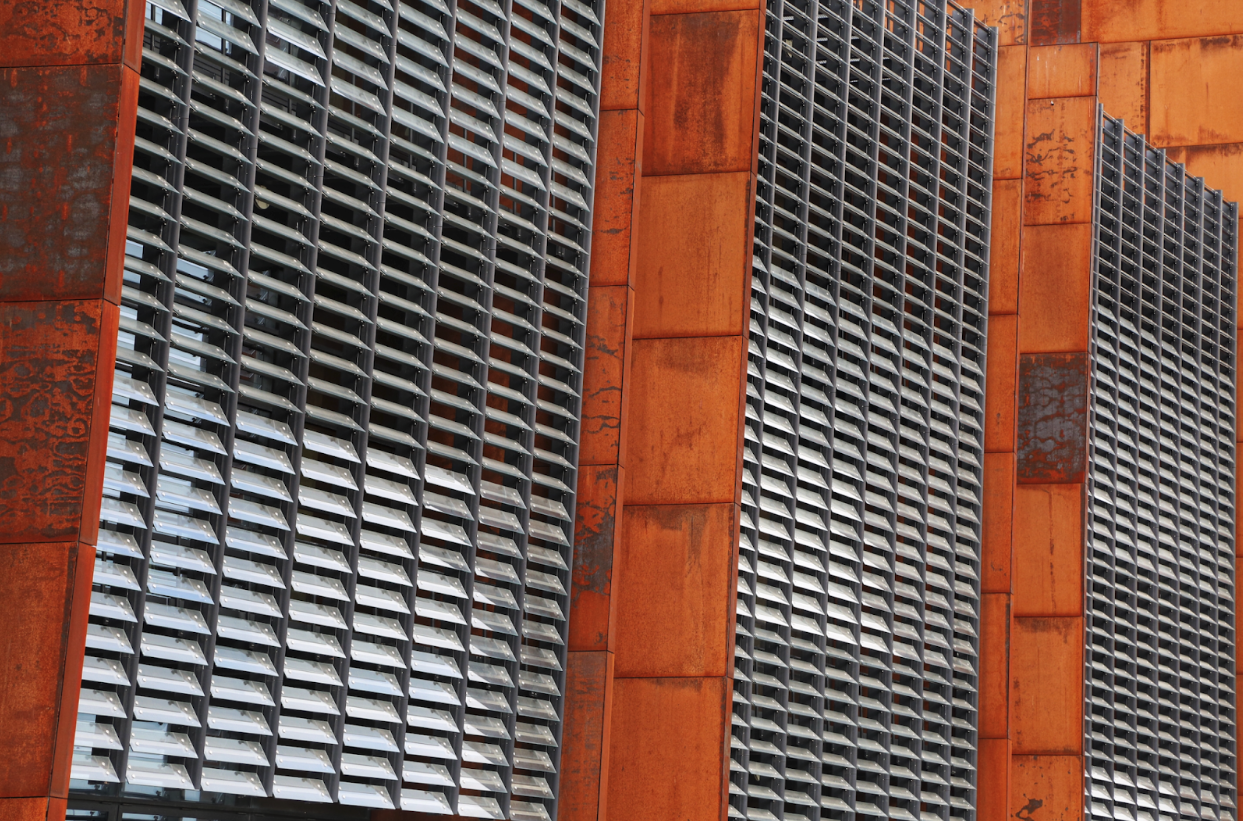
Commercial louvers are integral components in a variety of building applications, offering both practical and aesthetic benefits.
- HVAC Systems: Louvers are integral to HVAC systems, protecting air intakes and exhausts from environmental elements while ensuring optimal performance. They help maintain the efficiency and longevity of these systems by preventing the entry of debris and moisture.
- Specialized Buildings: In environments such as hospitals and laboratories, louvers are crucial for maintaining specific air quality and moisture control requirements. Their role in ensuring proper air circulation and environmental control is vital for these specialized buildings .
Best Colors for Commercial Louvers
Selecting the best colors for commercial louvers involves considering both aesthetic preferences and practical concerns.
- Popular Choices: Neutral tones like grey, black, and white are popular choices for commercial louvers as they blend well with most architectural styles. These colors provide a clean, professional look that complements modern building designs.
- Custom Colors: Custom color options are available for projects that require specific aesthetic considerations or branding. This flexibility allows architects and designers to choose colors that enhance the overall visual appeal of the building.
Air Performance LLC: An Industry Leader
Air Performance LLC is renowned for its commitment to quality, customer satisfaction, and innovation.
- The company holds various industry certifications, reflecting its adherence to stringent quality standards and best practices.
- Their state-of-the-art manufacturing capabilities enable the production of high-precision louvers tailored to specific project needs.
The experienced team at Air Performance collaborates closely with clients to provide customized solutions that meet exact specifications, ensuring uncompromising quality and performance in every project.
Achieve Superior Ventilation Solutions with Air Performance
Explore the extensive range of commercial louver solutions provided by Air Performance LLC, designed to meet the highest standards of quality and performance.
Regardless of your louver requirements, our tailored solutions ensure optimal functionality and aesthetic appeal for your building projects.
Contact us today for more information.